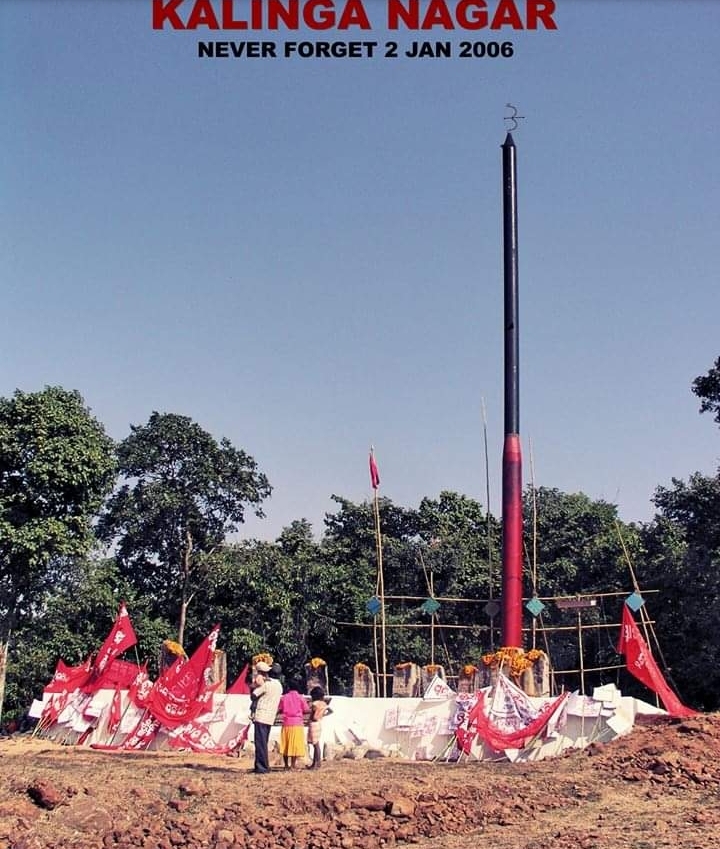Jajpur: Even though the police firing in Kalinaganagar in Jajpur district that claimed the lives of 13 tribals and that of a constable in a mob attack will be 13 years old Wednesday, the government’s promise to conduct a DNA test of the chopped palms of the slain tribals and hand them over to their families has not been fulfilled, a report said.
The bereaved families have not conducted the cremation of the chopped palms, and they believe that the souls of the dead cannot rest in peace due to this.
The tribals alleged that the government is ignoring their legitimate interests and is supporting business houses.
The incident is etched in tribal memory as the submission of the report by the Justice PK Mohanty Commission added salt to their wounds. The bereaved families have termed the report as unfortunate as it supported the police.
Meanwhile, security has been tightened in Kalinganagar on the eve of the firing’s 13th anniversary. The administration has deployed 13 platoons of police including two magistrates, two DCPs and 20 officers in sensitive places to prevent untoward incidents.
The firing took place during a protest against the construction of a compound wall for a Tata Steel project January 2, 2006.
Hundreds of tribals armed with bows and arrows had a serious conflict with contractors hired by the company during the protest. The situation turned ugly after the mob hacked constable Gopa Mohanty to death. The police opened fire killing 13 tribals and injuring hundreds.
Every year on this day, tribals gather at the Veer Bhumi near Champakoila village near Kalinganagar to observe Saheed Diwas (Martyrs’ Day) and commemorate the death of the 13 tribals.
A nationwide citizens’ committee comprising 13 organisations has flayed the Mohanty Commission report, which was submitted a year back, for supporting the police action against the tribals.
On the basis of then Collector’s report the commission had said that around 1,000 armed tribal villagers had assembled at the plant opposing the construction of a compound wall by the company January 2, 2006. Around 500 armed policemen had been deployed there to provide protection to the company.
The commission termed the assembling of tribals carrying traditional weapons as unlawful, and supported the mass killing of tribals by the police for a company, tribal Ramurai Jarika of Chandia alleged.
Another tribal Surendra Haibru of Gadapur said the police firing on the tribals was planned, and that the claim that they acted in self-defence was false.
PNN
